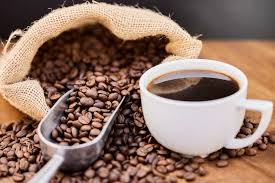For many people, starting the day with a cup of coffee is a daily ritual that helps them overcome fatigue, stay alert, and enhance their productivity. However, a recent study comparing the effects of drinking coffee versus consuming caffeine alone suggests that the benefits of coffee may extend beyond its caffeine content. The study’s findings, published in Frontiers in Behavioral Neuroscience, indicate that coffee consumption, but not caffeine alone, has distinct effects on brain activity associated with visual processing and higher-level cognitive function. These findings raise intriguing questions about the true nature of the energy boost provided by your morning cup of joe.
source; Eclat
The Study: Coffee vs. Caffeine Only
In the study, researchers recruited habitual coffee drinkers and examined the neurological effects of consuming coffee versus caffeine alone. Forty-seven participants, who consumed at least one cup of coffee per day, underwent fMRI scans before and after either drinking coffee or taking caffeine. The results revealed that both coffee and caffeine reduced functional connectivity in the default mode network (DMN), a brain network associated with self-referential processes during rest.
While both coffee and caffeine reduced DMN connectivity, coffee consumption led to additional effects not observed with caffeine alone. Specifically, coffee drinkers exhibited increased activity in executive control and visual networks, which are implicated in visual processing and cognitive functions such as working memory, cognitive control, and goal-directed behavior. These findings suggest that the benefits of drinking coffee may be attributed to mechanisms other than caffeine alone.
The Role of the Sensory Experience
One possible explanation for the differential effects of coffee and caffeine lies in the sensory experience of drinking coffee. The study’s authors speculate that the compounds and sensory aspects of coffee, such as terpenes, polyphenols, and the overall experience of consuming coffee, may contribute to the observed effects. The researchers suggest that the placebo effect, cultural associations, and expectations associated with the morning coffee routine might also play a role in enhancing alertness and productivity.
Registered Dietitian Nutritionist Armargo Couture notes that the cultural and social norms surrounding morning coffee can contribute to the placebo effect. The act of drinking coffee before starting the day has become deeply ingrained in our collective experience, and many individuals associate it with waking up, productivity, and preparation for the day ahead. This association may contribute to the perception of increased energy and motivation after consuming coffee.
Furthermore, the compounds found in coffee, such as terpenes (cafestol and kahweol) and polyphenols (chlorogenic acids), have been studied for their potential to interact with brain receptors, increase energy levels, elevate mood, and provide a motivated mindset. These compounds have also been associated with anti-inflammatory and antioxidant properties, which may contribute to a lower risk of depression

Source: new York post
Conclusion
The question of whether your morning coffee truly provides an energy boost or is simply a placebo remains a subject of scientific inquiry. While caffeine plays a role in stimulating the central nervous system and enhancing cognitive function, the unique effects observed in coffee consumption suggest that other compounds and the sensory experience of drinking coffee contribute to its potential benefits. The cultural associations and placebo effect associated with the morning coffee ritual further enhance the perception of increased alertness and productivity.
Understanding the distinct effects of coffee on the brain, beyond caffeine, may help uncover the full extent of its cognitive benefits. Further research into the mechanisms underlying these effects can shed light on the complex interplay between the compounds in coffee, sensory experiences, placebo effects, and individual responses. In the meantime, whether your morning cup of coffee is an energy boost or a placebo, it continues to be a cherished part of daily routines for millions of people worldwide.













